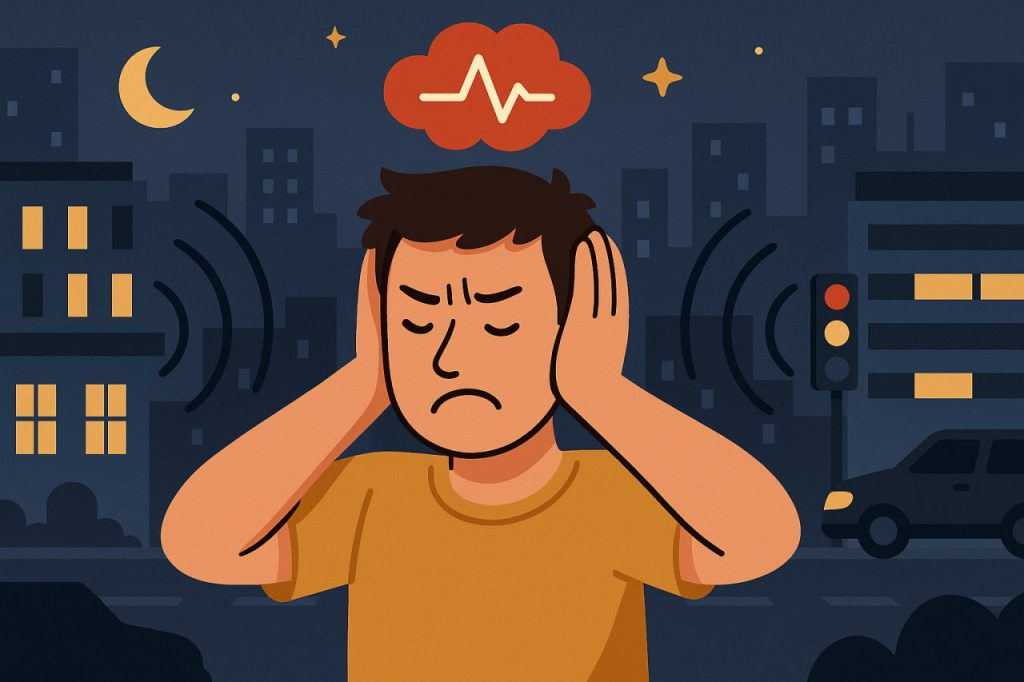Cortisol, often called the “stress hormone,” plays an important role in regulating metabolism, immune function, and the body’s response to stress. While short bursts of cortisol can be beneficial, chronic elevation caused by constant noise exposure can harm both physical and mental health.
The Connection Between Noise and Cortisol
When the brain perceives sound as a potential threat — even if it’s not dangerous, like traffic or loud neighbors — the hypothalamus-pituitary-adrenal (HPA) axis is activated. This triggers the adrenal glands to release cortisol. The louder and more persistent the noise, the more often this stress response occurs.
Negative Effects of Elevated Cortisol from Noise
- Sleep Disruption
Nighttime noise can prevent deep sleep phases, keeping cortisol levels higher and reducing the body’s ability to rest and recover. - Weakened Immune System
Constant high cortisol suppresses immune activity, making the body more vulnerable to infections. - Cardiovascular Strain
Prolonged stress from noise can increase blood pressure and heart rate, raising the risk of heart disease. - Cognitive Impairment
High cortisol is linked to difficulty concentrating, memory issues, and reduced learning ability. - Mood Disorders
Long-term noise exposure can increase the risk of anxiety and depression through constant stress hormone activation.
Common Sources of Noise Stress
- Traffic and city sounds
- Loud household appliances
- Construction work
- Noisy workplaces or industrial environments
- Prolonged exposure to loud music or entertainment venues
How to Reduce Noise-Induced Cortisol Spikes
- Use noise-cancelling headphones or earplugs in loud environments.
- Install soundproofing or thick curtains in the home.
- Maintain a quiet bedtime routine to improve sleep quality.
- Spend time in natural, quiet spaces to allow cortisol levels to normalize.
Conclusion
While some noise is unavoidable, constant exposure to loud or disruptive sounds can keep cortisol elevated, impacting health over time. Protecting your hearing environment is an important step in maintaining hormonal balance and overall well-being.
Glossary
- Cortisol – A steroid hormone released during stress that regulates many body functions.
- HPA axis – The system connecting the brain and adrenal glands that manages stress responses.
- Immune suppression – Reduction in immune system activity.
- Soundproofing – Techniques or materials used to block or reduce sound.
- Chronic stress – Ongoing stress that persists over an extended period.


